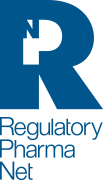On 3rd March 2022 the European Medicines Agency (EMA) released the 5-years report for its PRIME (PRIority MEdicines) scheme, that provides a detailed analysis and review of the Agency’s experience with the scheme in its first 5 years of application.
Launched in March 2016, the PRIME scheme supports the development of medicines that may offer a major therapeutic advantage over existing treatments, or benefit patients without treatment options.
Through PRIME, the Agency offers early dialogue, interaction and proactive support to medicine developers to optimize the generation of robust data on a medicine’s benefits and risks and so to speed up evaluation and availability for the patients of therapies that may significantly improve their quality of life.
Key benefits for applicants are:
- early appointment of Rapporteur from the Committee for Medicinal Products for Human Use (CHMP) or from the Committee on Advanced Therapies (CAT) in the case of an advanced therapy;
- kick-off meeting with the CHMP/CAT Rapporteur and a multidisciplinary group of experts;
- assignment of a dedicated EMA contact point;
- scientific advice at key development milestones, involving additional stakeholders such as health-technology-assessment (HTA) bodies;
- confirm potential for accelerated assessment at the time of an application for marketing authorization.
In order to be eligible and accepted for PRIME scheme, a medicine has to show its potential to benefit patients with unmet medical needs, based on early clinical data.
The 5-years report outlines the positive impact the EMA’s PRIME scheme has had on drug development for unmet medical need over the last five years: this positive trend is more pronounced for SMEs and ATMPs. The analysis also showed that supporting PRIME products during development resulted in a reduction in the time required by the applicant to answer EMA questions during the evaluation (clock-stop) leading to faster reviews and faster access to patients to PRIME products.
In particular, the report reveals that:
- a total of 95 requests for PRIME eligibility were granted.
- the orphan designation appears to increase the probability to be granted PRIME (the 56% of PRIME products are orphan-designated even if the orphan designated products account for ~42% of PRIME eligibility requests)
- a total of 18 medicines that had PRIME support were approved in the European Union (EU), 10 of which received a conditional marketing authorisation (CMA).
Regulatory Pharma Net provides support to companies in targeting the proper regulatory milestones to facilitate faster access for patients to new medicines in EU, including assistance in the eligibility request for PRIME.
Do not hesitate to contact us at info@regulatorypharmanet.com




